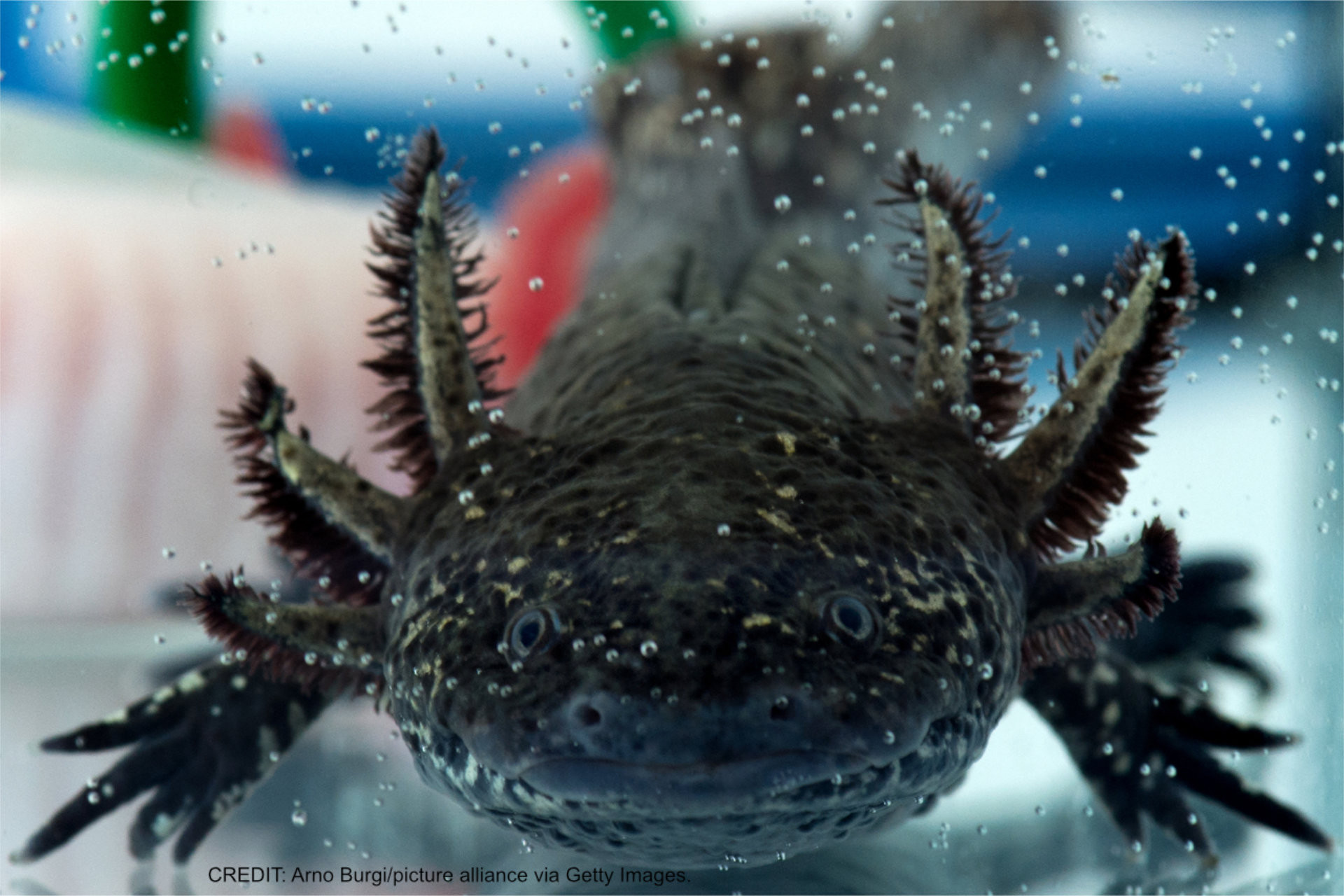Axolotl mucus peptides attack breast cancer cells and MRSA

Axolotls, known for their remarkable ability to regrow limbs and even organs like parts of the brain and heart, are now being studied for their mucus, which contains antimicrobial peptides (AMPs). These AMPs protect axolotls from infection and have shown effectiveness against antibiotic-resistant bacteria such as MRSA, as well as cancer cells. A new study published in PLOS ONE suggests that axolotl mucus may offer promising solutions to combat antibiotic resistance, as AMPs are a key part of the innate immune system found in most organisms.
Dr. Peter M. Vogt, co-author of a new study, highlights that antimicrobial peptides (AMPs) could serve as a future alternative to antibiotics due to their broad-spectrum effectiveness and the reduced likelihood of pathogens developing resistance. The study focused on captive-bred axolotls (Ambystoma mexicanum), an endangered species native to southern Mexico City, where they face extinction threats from habitat loss, pollution, and invasive predators. Researchers at the Ambystoma Mexicanum Bioregeneration Center collected skin mucus from axolotls by gently massaging them with sterile gloves, then scraping the mucus for analysis. All procedures followed the German Animal Welfare Act.
Researchers synthesized thousands of antimicrobial peptides (AMPs) from axolotl mucus and narrowed them down to 22 promising candidates. Producing AMPs is challenging and costly, as they are harder to generate in microorganisms than traditional antibiotics. Their effectiveness lies in their unique chemical structure—positively charged amino acids and water-repellent elements—that allow them to bind to bacterial cell walls, either puncturing them or disrupting internal molecules, ultimately killing the cells. AMPs also show activity against viruses and fungi, highlighting their broad therapeutic potential.
Biologist Sarah Strauß of Hannover Medical School explains that the unique chemical structure of antimicrobial peptides (AMPs) may be key to their effectiveness against antibiotic-resistant bacteria and could help reduce the development of future resistance. This is especially critical as even reserve antibiotics like vancomycin are becoming less effective. In the study, four AMPs from axolotls showed strong activity against MRSA, with some outperforming vancomycin. Co-author Dr. Peter Vogt emphasized the importance of these findings, noting that MRSA continues to spread due to the overuse of antibiotics in both medicine and agriculture.
Researchers found that three of the four antimicrobial peptides (AMPs) effective against MRSA also showed anti-cancer properties. In lab tests, these peptides triggered programmed cell death in breast cancer cells—while sparing healthy tissue. Biologist Sarah Strauß emphasized the peptides’ selective toxicity, suggesting strong potential for both antibiotic resistance treatment and cancer therapy. Though further studies are needed, the findings highlight axolotl mucus as a promising source for future medical therapeutics. To learn more, please read Laura Baisas’ article in Popular Science https://www.popsci.com/environment/axolotl-mucus-cancer-antibiotics/